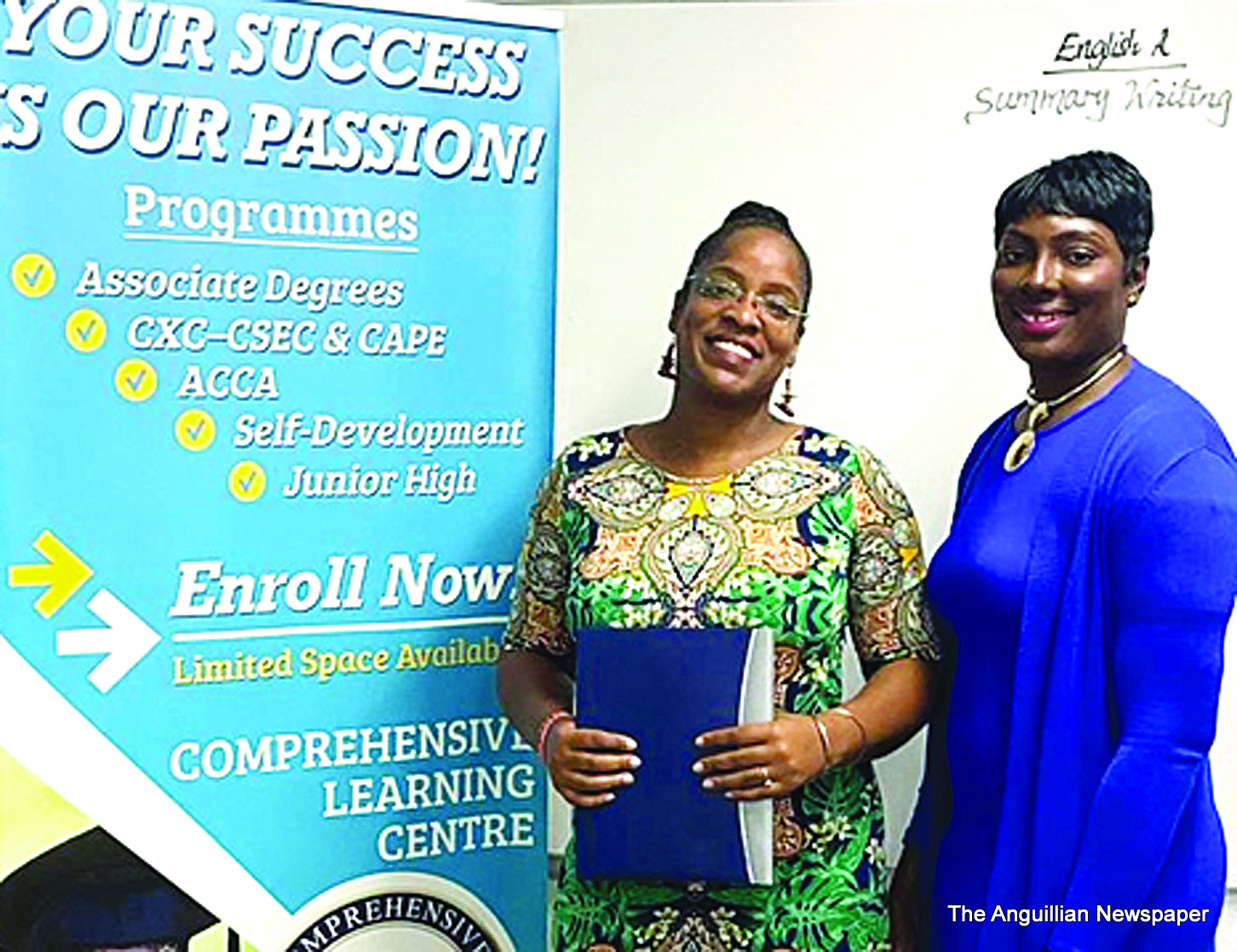As the English A students of the Comprehensive Learning Centre returned to the classroom with their colleagues, for Semester II’s commencement, on Monday 4th January 2021, fresh in their minds were the significant learning experience recently encountered during their evening class session. Two professionals from the national radio station, Radio Anguilla, joined them to share how the Art of Writing Summaries can be better understood and accomplished.
Each year, students struggle with summary writing, which is most apparent in their handling of the summary question during their CSEC examination. This shortcoming usually prompts the writers of the CXC post-examination reports to highlight these inadequacies. While we all engage, to some extent, in summarising various daily experiences to our family and friends, we do so without associating the word ‘summarising’ with these encounters. Moreover, when one is required to write a summary, more significant challenges arise as writing, vocabulary, and a range of other skills, are required to complete the task successfully. Nunan (1989) pointed out that “writing is an extremely complex, cognitive skill for everyone because, in this activity, the writer has to show control of some variables “simultaneously” (p.36).

Aware of these factors, and to demonstrate to students that summarising is often a daily requirement in our personal and professional lives, the Comprehensive Learning Centre’s English teachers sought the expertise of practitioners who utilise summary skills regularly. Radio Anguilla’s Director, Ms Farrah Banks, and Information Officer, Ms Felicia Hennis, accepted the invitation and skillfully conducted a very informative and practical session with the students.
In her presentation, Ms Banks emphasised that English is the language of international communication, the media and the internet, so understanding and competently communicating using standard English is essential. She noted that her profession’s journalistic obligations require the practitioners to keep the news comprehensive and proportional. Therefore, the ability to effectively summarise any information before it being released as a news story is compulsory. She stressed that in the preparation and presentation of their news items, the information officers had to incorporate the professional discipline of assembling and verifying facts – and then trying to convey a fair and reliable account of their meaning. She reminded students that as opposed to her time at school, they had the advantage of using computer technology and the internet to prepare their summaries. Following her discussion on the techniques and processes involved in writing summaries, Ms Banks engaged the students in the actual summary writing of a story provided by the CLC.
Likewise, Ms Hennis followed with an excellent session. She shared an article with the students and then interactively demonstrated the process for summarising it, employing no more than 120 words. She underscored the point that the summary is a reconstruction of the significant point/s of development, which begins with identifying the main idea followed by the supporting details. Therefore, she noted that students must read the passage carefully, understand the main idea being espoused and then in an organised manner, group together the points, and use one’s own words to convey the author’s argument. Ms Hennis further explained to the students that she utilised a technique in which she formulated a single sentence that summarised the entire passage. She then rearranged and rewrote the original text using her own words while maintaining the contextual meaning. Finally, she ensured that the resulting work was clear and concise, eliminating repetition and irrelevant points.
Ms Hennis encouraged the students to view BBC.com and listen to the BBC news. She urged them to become avid readers, noting that reading stimulates the mind, increases vocabulary, improves writing skills, confidence, and the ability to use words creatively. She noted that English is subjective and used the analogy of a court scene where the accused was actually caught in the crime. However, due to his lawyer’s wit and articulation of the events, along with other legal pleadings, the jury believed his arguments, and the accused was acquitted.
The students were very impressed with the presentations and felt privileged to have had the opportunity to interact with professionals who have mastered summary writing in everyday life. According to student Odeanna Rogers, the information shared and skills learnt, made her feel like she could go home and write ten summaries.
The management and staff of the Comprehensive Learning Centre are highly appreciative of Radio Anguilla’s staff members for imparting such applicable and valuable information to the students.
– Contributed







